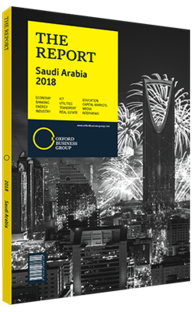Mohammed El Kuwaiz, Chairman, Capital Market Authority (CMA): Interview

Interview: Mohammed El Kuwaiz
How successful has recent capital market deregulation been in attracting investment flows?
MOHAMMED EL KUWAIZ: Saudi Arabia is the 23rd largest capital market in the world and the largest in the region by market cap. In spite of the market size, however, growth potential has historically been constrained by limited market access. To unlock this growth, we are deregulating the access requirements for investors, local and foreign issuers, and market participants, which is also allowing the entrance of more market intermediaries and financial advisors.
We started deregulating the market in 2015 with our first qualified foreign investor (QFI) model, which was intended to test investor feedback. After receiving a good deal of positive responses, we are now launching our third QFI iteration, which, among other things, will simplify and streamline the QFI certification process by embedding it into the regular account opening procedure. Importantly, if an entity is registered as a QFI all of its subsidiaries will automatically be registered as well. As of late 2017, there were almost 120 QFIs, with 30% of these signing up in the third quarter of 2017 alone.
In what ways is the current regulatory agenda expected to streamline market operations?
EL KUWAIZ: Over the course of 2017 we completely revamped our mergers and acquisitions (M&A) regulations, simplifying them significantly for publicly traded firms. This resulted in a substantial increase in M&A activity. We have also revised our regulations for offerings of securities – in terms of initial public offerings (IPOs) and private placements – as well as special-purpose entity regulations. Coupled with the latter, the recurring issuance cycle of the Saudi government will help to create a yield curve that is supportive of debt market growth in the near future. Additionally, we are finalising book building regulations, which will also contribute to the streamlining of the IPO process, including for larger-scale offerings such as Saudi Aramco.
In terms of more direct legislation, we passed the country’s first mandatory corporate governance code. This sets requirements in line with global norms, and changes disclosure from local accounting standards to International Financial Reporting Standards. The latter reform aims to simplify the listing process for equities and debt issuances.
Ultimately, both the CMA and the Saudi Stock Exchange view attracting foreign investors as less of a box-ticking exercise, and more as an engagement exercise. On this basis, we are working on the country’s first financial technology lab to solicit ideas that may not fit within the confines of current regulatory structures, having the aim of attracting and incubating forward-thinking businesses.
How do you expect the performance of the Nomu parallel market to evolve over time?
EL KUWAIZ: Nomu is an achievement and opportunity not to be underestimated. Nomu’s goal is to simplify market access for companies that have historically been unable to utilise the capital market because it was too expensive or complex. We believe that easing monetised exits for small and medium-sized enterprises will encourage start-up activity by releasing pressure on entrepreneurs and venture capital investors. For investors, Nomu offers a new asset class with different return and risk categories. Nomu already has eight firms listed and the biggest listing pipeline in the CMA. Thanks to structural regulatory changes, approval time for the main market has been cut from over six months to eight to 12 weeks from the time of filing, while for Nomu it is six to eight weeks. We are also using Nomu to pilot foreign investor access policies. For instance, we removed QFI requirements completely, levelling local and foreign investor access to Nomu.
You have reached the limit of premium articles you can view for free.
Choose from the options below to purchase print or digital editions of our Reports. You can also purchase a website subscription giving you unlimited access to all of our Reports online for 12 months.
If you have already purchased this Report or have a website subscription, please login to continue.

